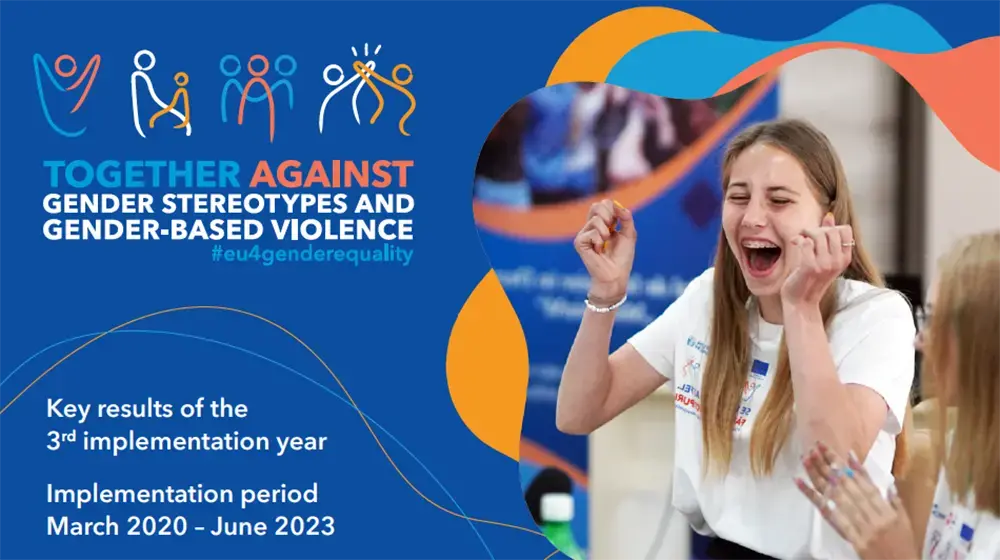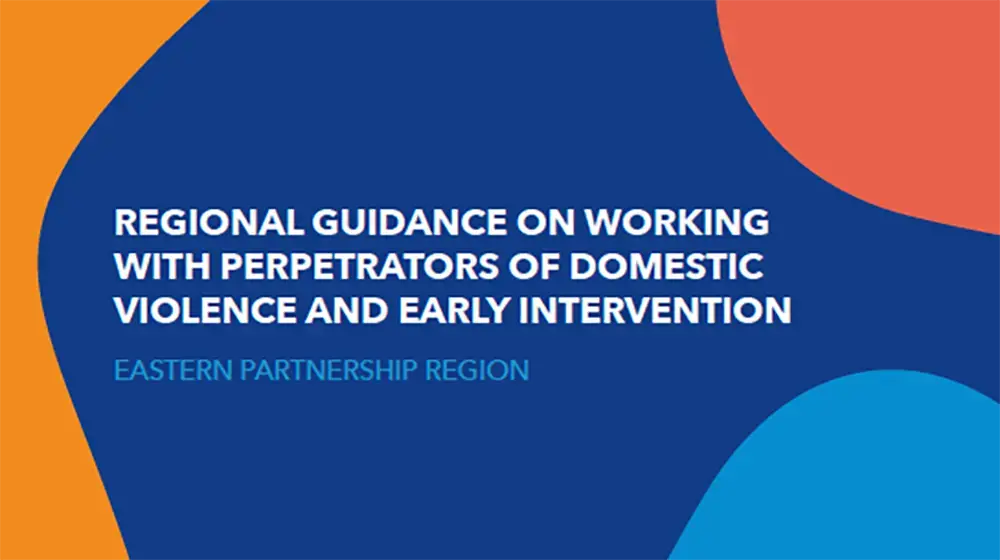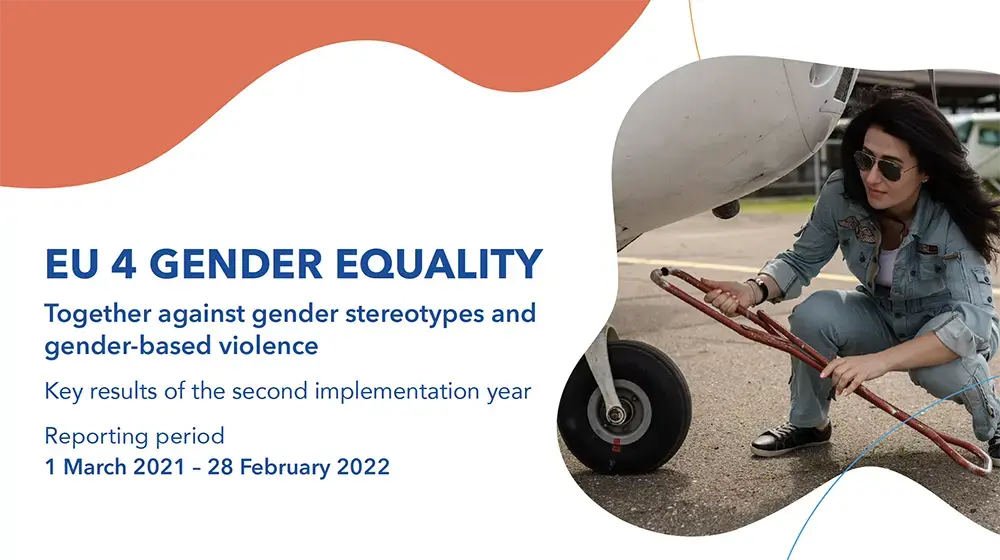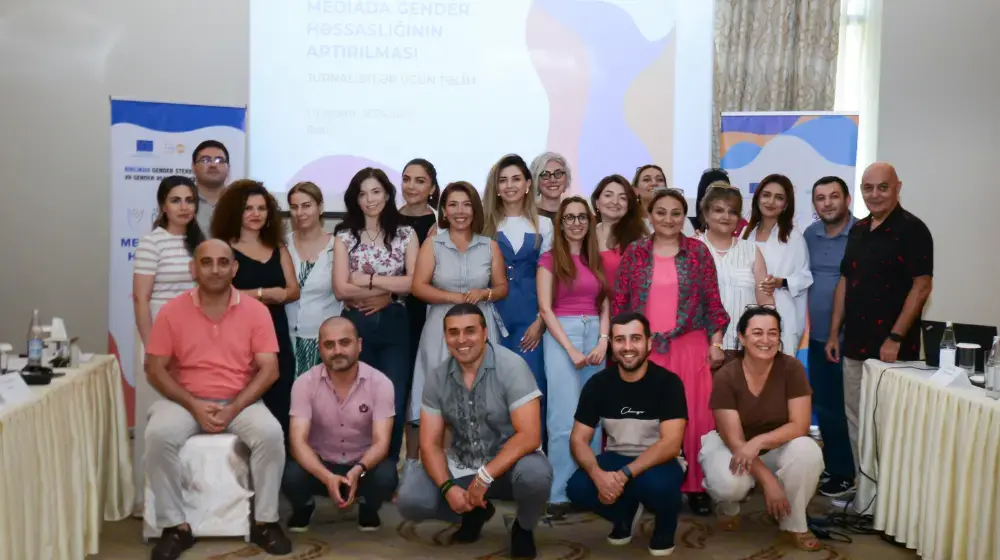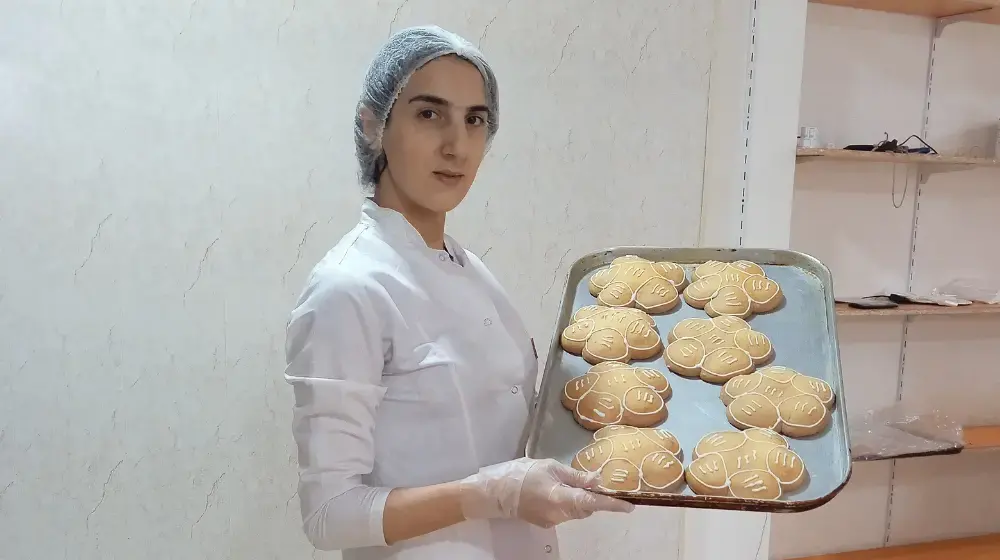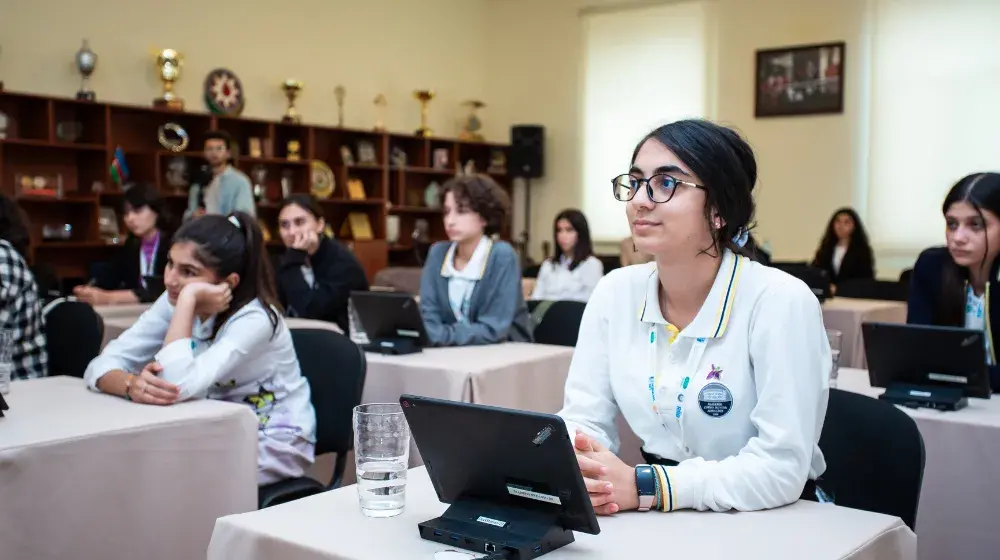About the Programme
The second phase of the “EU 4 Gender Equality: Together Against Gender Stereotypes and Gender-Based Violence” programme seeks to reduce gender discriminatory attitudes and practices in institutional and community spheres by continuing and upscaling successful initiatives and interventions from the phase I.
The programme is funded by the European Union (EU) and implemented jointly by UN Women and UNFPA in six Eastern Partnership countries: Armenia, Azerbaijan, Belarus, Georgia, Moldova, and Ukraine.
Overall, the programme provides a unique opportunity to change the social discourse, perceptions and harmful practices on gender equality in the region, and to empower women and girls to fully access their rights and develop their potential.


